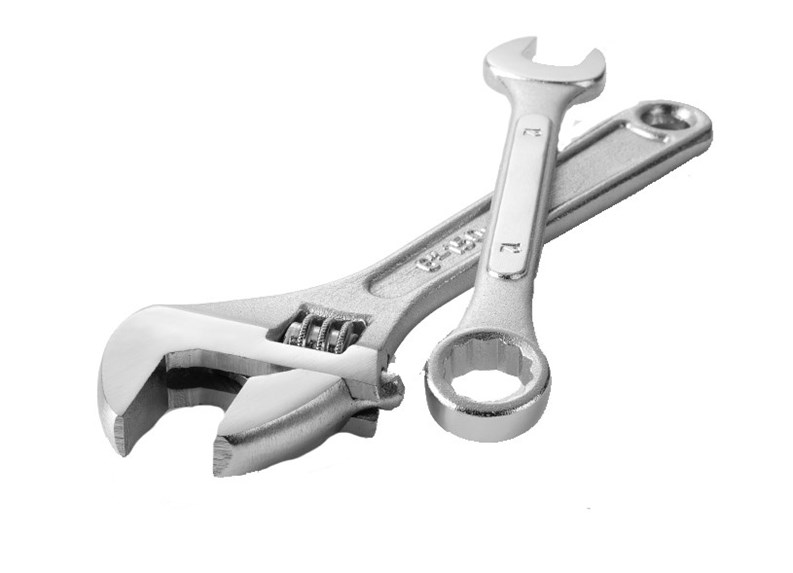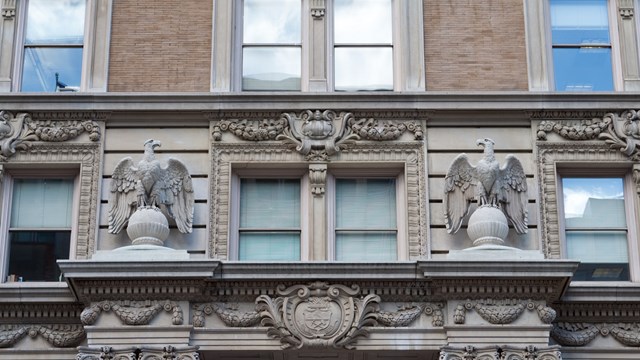If you had to name the single most valuable individual to your co-op or condo, who would it be? Certainly, your board president, managing agent, corporate counsel and accountant are key players. But boards and residents should never underestimate the importance of a competent, conscientious superintendent. The condition of your building's mechanical systems, how well maintained its public areas are and even aspects of its financial condition can all be traced to how well your superintendent performs. Knowing how to gauge your super's performance and how to improve it for the future will go a long way toward making your property the best it can be.
The role of the superintendent demands an ever-increasing level of professionalism and competence in a wide variety of areas. "The super must be conversant with every mechanical and technical system in the building, work diplomatically to solve problems in the building, be responsive to residents and be able to work as a team member with the board and the managing agent," says Steve Kessler, director of management at Andrews Building Corp. in Manhattan.
"He should be cost-conscious and honest when it comes to working with vendors and contractors, proactive when it comes to heading off problems, and he should have all the appropriate training and licenses in such areas as boilers, HVAC (heating, ventilation and air conditioning) and fire safety," adds Pat Goldwater, vice president of Aptek Management in Manhattan. "He also should be on the premises or immediately available 24 hours a day, seven days a week," she adds.
In fact, the Housing Maintenance Code of Union 32B/J, the union that covers building workers such as superintendents, clearly states that in residential buildings of ten or more units, the super must live either on-site or within 200 feet of the building. "And," says Jerry Picaso, principal of the Manhattan-based management company Gerard J. Picaso, "he should be able to effectively manage the handymen, the porters and all other building staff members." Despite all these "shoulds," it's interesting to note that no specific description of a superintendent's job responsibilities is included in the Union 32B/J contract.
"It does sometimes say what the super can't do," points out Donald Maher, a partner with the law firm of Maher & Brown and a labor and employment expert. "For instance, supers can't collect rent. But in general, job duties are not described."
Who decides what your superintendent is supposed to do? "The super, managing agent and board have pretty much free range in constructing a job description as long as it's consistent with the collective bargaining agreement," says Maher. "However, I don't know that I would always recommend that there be a written job description because later on if you ask someone to do something that isn't explicitly in there, you can get, "˜That's not my job.' Nevertheless, from the perspective of management, it is better to have a clear understanding of what is expected of the superintendent." To ameliorate the apparent negatives of a written job description, Maher advises that any such document contain a catch-all phrase, such as, "Plus any other directive issued by (whomever)."
Managing agents Kessler, Goldwater and Picaso all strongly advocate written job descriptions, pointing out the necessity of specifying job duties so that they can be referred to if disputes arise and also so that they can be used to quantify and measure performance. The board, the managing agent and the super should all collaborate on the creation of a job description, and should agree that it is fair and reasonable and that it will be used as the minimum standard of job performance. Goldwater suggests that the job description contain clear directives regarding whether or not and under what circumstances a super can perform private work for residents, so that no misunderstandings occur.
In terms of job training, Union 32B/J provides many classes, as do several area educational institutions. However, while most of these courses are technical in nature and many lead to eligibility for licenses appropriate to a superintendent's position, there are few, if any, courses that train superintendents in the necessary people skills they need to be top-notch in their profession.
"Many of the guys who came up through the ranks have had no training in supervision, management or interpersonal communication," observes Maher, "and they can be a little rough around the edges."
In response, several management companies have instituted in-house superintendent training programs that include such topics as staff supervision and how to get along with residents. "But not everyone can be trained in those areas," observes Kessler. "In most cases, you either have it or you don't." The best superintendents have not only technical skills but also understand how to supervise and manage people, how to communicate productively with the board, management and residents, and how to deal honestly and effectively with the myriad vendors and contractors who service the building.
"In smaller buildings," says Picaso, "you typically find supers performing all the duties commonly associated with a superintendent as well as those of a handyman and a porter, such as doing repairs and taking out the trash. In slightly larger buildings, the super may have a porter but he still does hands-on repairs. In still larger buildings, where there's a staff of handymen and porters, the superintendent's job of necessity becomes more managerial."
"Resident managers are generally not covered by any labor agreement, nor is there any definition in the labor agreement as to what they are," says Maher, who explains that the law defines resident managers as supervisors who have the authority to perform such functions as hiring, firing, setting terms and conditions of employment, approving overtime, and assigning and supervising the work of others.
Where your super stands in the hierarchy of your building's management, and how he is perceived and treated by the board, by management and by residents, are important issues to address. Universally, it is the job of the board to set policy, the job of the managing agent to implement that policy and supervise the super, and the super's job to supervise the building staff and report back to management. Often, however, boards that want their superintendents to feel a greater sense of responsibility and loyalty to the building demonstrate a higher level of respect for their work as evidenced, for instance, by their invited participation in at least part of the monthly board meeting and in the annual meeting.
"That certainly would give the super a sense of being in the loop," says Picaso. Kessler advises that, whether or not the super is invited to the monthly board meetings, he should definitely be included in the appropriate aspects of large capital projects since the super is - or ideally, should be - a building's first line of defense when it comes to such projects.
"It's important that the board, management and the super be on the same wavelength," adds Elliot Meisel, a partner with the Manhattan law firm Brill & Meisel. "Many of the more successful boards are those that keep their directives and policy decisions to a minimum and allow their managing agent and the super to work out polices and procedure that benefit the building."
When a super fails to perform up to standard, there are mechanisms to remedy the situation. In buildings where the superintendent is not a member of the union, the board can terminate him at will, assuming legitimate cause. Where the superintendent is a union member, a program of progressive discipline exists that goes from a documented verbal warning to a one-, two-, or three-day suspension with or without pay to discharge, again assuming legitimate cause.
In both non-union and union situations, when a superintendent commits a criminal act or poses a demonstrable danger by his presence, he can be fired immediately. And in any disciplinary situation, it is imperative that both the board and management maintain accurate and ongoing documentation of the disciplinary actions taken for their own purposes and also for their protection in the event the super brings suit against them or initiates an arbitration proceeding.
Clear communication about the building's chain of command and its expectations are key to good job performance. Providing decent living conditions, the tools necessary to get the job done (including a beeper or a cell phone for instant communication) and respect for the crucial services the super provides, are also instrumental in creating a productive working relationship.
"People need to be educated to the fact that the super has studied to do his job and that he has the ability to potentially save the building tens of thousands of dollars," says Goldwater.
Stuart Sandhouse, board president of a 143-unit co-op in Manhattan, agrees. "You've got to get your super involved in the decision-making process and make him a part of the team," says Sandhouse, "because he's the one who knows the building better than anyone. He's to be listened to and respected for his knowledge and the contribution he makes to the building. Take him seriously and take good care of him. He's a very valuable resource, and good superintendents are not easy to come by."







125 Comments
Leave a Comment